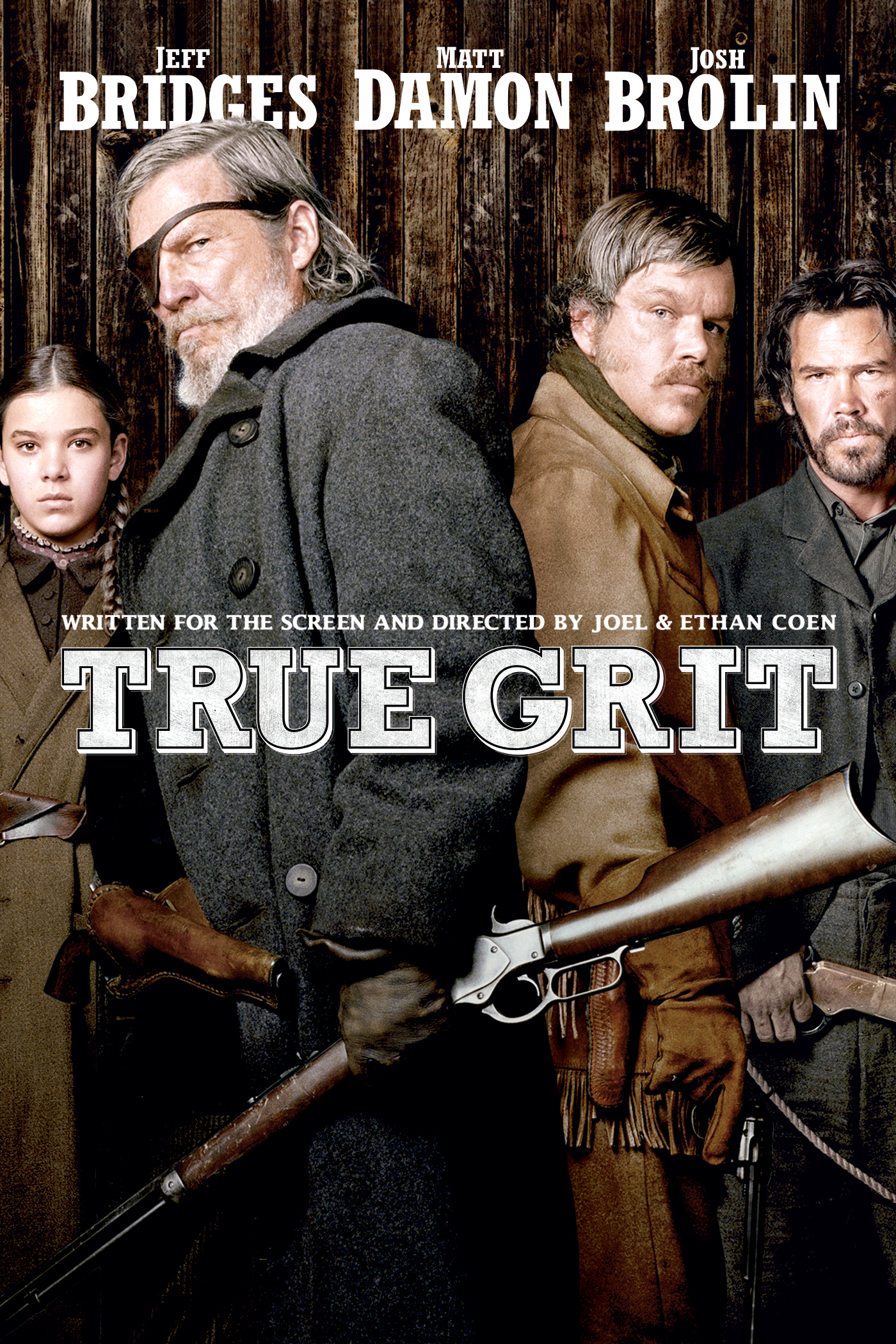
In 1969, it was all about Mattie and Rooster's comic father-daughter relationship and LaBoeuf was a minor figure. But this is partly because the Coens have transferred some of this warmth to the third figure in the film. At first glance, this True Grit does not have the warmth of John Wayne's unselfconscious, roistering turn. The answer, I think, lies in the revitalised figure of LaBoeuf, excellently played by Matt Damon. So where's the advantage of another True Grit? This is certainly utterly unlike the Coens' freewheeling remake of The Ladykillers and, I would guess, their proposed new version of the 60s caper Gambit.
#True grit cast movie
So why precisely did the Coens want to make this film? It's a difficult question aside from the ending – which will blindside you with its poignancy and force – it really is pretty similar to the first movie in plot terms, and a sceptic might feel the Wayne classic has been fed into a special machine which turns old movies into hip indie-arthouse product, like those devices for converting vinyl into downloadable MP3 files. The one detail in the first film which was darker than this new one, incidentally, was Hathaway's shot of children callously playing on swings in a playground right by where men are being hanged: a very Coenish touch. Such a potent actor would probably be better off portraying the younger Cogburn in some prequel playing a weaker man does not suit him. Perhaps the only slightly uncertain note is Josh Brolin's performance as cringing Chaney. As Rooster and young Mattie take grimly to the road together, surreally encountering what appears to be a bear riding a house, there are more hints of McCarthy. Seen closeup and directly from below, foreshortened and shrunk, it looks even scarier. There are moments when this True Grit has the disturbing quality of the Coens' version of Cormac McCarthy's western thriller No Country for Old Men: a decaying corpse is found hanging high in a remote forest. It's a more violent film, too, with one bad guy getting shot in the face at point-blank range and another getting his fingers chopped off, all in front of Mattie – who is unfazed, unsentimental, and unwilling to accept Rooster in the surrogate-dad role that we, the audience, may by now be urging on her. He's still a drinker, but less lovable and more detached: there's even a black comic moment of cruelty where Rooster brutally boots a Native American child off a front porch. He speaks in low, guttural growl, his jaws sometimes almost wired shut and mouth hardly moving, like a ventriloquist. This is definitely a darker, more austere picture: where Wayne played Rooster with more warmth, and delivered almost every line as if he was calling across the room to someone, Bridges takes a conscious decision to play the role in the opposite direction.

This chaotic trio is riven with all sort of tensions – Rooster's exasperated, yet sentimental concern for Mattie, their mutual resentment of LaBoeuf's spur-wearing Texan machismo Rooster and LaBoeuf bickering about respective war records and Mattie's seething suspicion that these males are going to cheat her of her one ambition – to see Chaney hang for killing her dad. The situation is complicated by a second lawman being on Chaney's trail: LaBoeuf, a smug and faintly dandy-ish Texan played by Matt Damon, who wants to bring Chaney in on a different charge. Rooster's life is turned upside down when a formidably intelligent and driven 14-year-old girl enters the scene Mattie Ross, played here by newcomer Hailee Steinfeld, hires Rooster to catch Tom Chaney, the man who killed her father, and who has now fled to the lawless wilderness of Oklahoma's Indian Territory. Jeff Bridges now takes the Wayne role of Reuben "Rooster" Cogburn, a fat, boozy, old guy with an eyepatch in late 19th-century Arkansas, who after a rackety career of gunslinging and soldiering is now employed as a US marshal, pursuing miscreants and fugitives, and none too squeamish about what nobody called their civil rights.


 0 kommentar(er)
0 kommentar(er)
